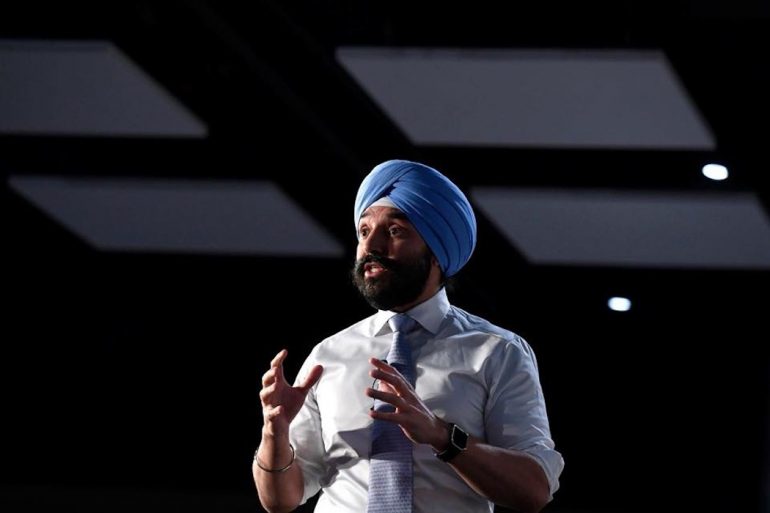The federal government announced several funding commitments earlier today to support COVID-19 vaccine development.
The funding includes $59 million in commitments to support clinical trials for COVID-related vaccine treatments, along with $19 million in COVID-19 research projects. Minister of Innovation, Science and Industry, Navdeep Bains, along with Anita Anand, Minister of Public Services and Procurement, led the announcement.
“While we have many tools at our disposal to fight COVID-19, we understand that it is important to have a vaccine that we can deliver to Canadians,” Minister Bains said during a press conference Wednesday morning. “We are also making sure that we will be able to produce a vaccine at a scale that can serve all Canadians.”
“We are also making sure that we will be able to produce a vaccine at a scale that can serve all Canadians.”
The bulk of the commitment comes via $56 million through the Strategic Innovation Fund to support clinical trials for a COVID vaccine candidate from Variation Biotechnologies Inc. (VBI). Recommended by the federal government’s Vaccine Task Force, the funding is part of the previously announced $600 million commitment to support COVID-19 vaccine and therapy clinical trials. Headquartered in the U.S., VBI also has a research facility in Ottawa.
An additional $3 million was committed to Nova Scotia-based IMV Inc. for clinical trials of a COVID-19 vaccine candidate. The support comes via contributions from the National Research Council of Canada’s Industrial Research Assistance Program (IRAP), and the Next Generation Manufacturing Canada Supercluster.
The federal government also committed $19 million in funding to support 369 different COVID-19 research projects, including work related to vaccines. The funding will come through the Natural Sciences and Engineering Research Council of Canada (NSERC), in collaboration with the Social Sciences and Humanities Research Council (SSHRC) and the Canadian Institutes of Health Research (CIHR).
Both ministers were keen to stress that the funding came at the recommendation of recently developed vaccine and therapeutics task forces, which provided both scientific and technical advice, along with financial support prioritization.
“My objective today, and what I’m really focused on, is domestic production capability,” said Bains. “How do we make sure that we’re in a position to sufficiently produce a significant amount of doses for all Canadians.”
In addition to the funding commitments, the government also announced an agreement with Pfizer and BioNTech to receive supplies of their BNT162 mRNA-based vaccine candidate, subject to clinical success and Health Canada approval.
Pfizer and BioNTech hope to seek regulatory review for their vaccine as early as October 2020, and with a target to manufacture up to 100 million doses globally by the end of 2020.
“We’re expecting delivery [of a vaccine], if all goes well, in 2021,” said Minister Anand.
Both ministers declined to offer specifics on the pricing or volume of doses acquired, citing ongoing negotiations.
“The information that we can reveal at the current time regarding doses, in particular, is being kept confidential because we are taking a prudent approach to the negotiations while we are engaged with other suppliers,” Anand said. “Having said that, I will definitely indicate in our contracting we are taking the approach of establishing and negotiating firm orders with multiple suppliers as well as options to purchase more orders should the need arise.”


